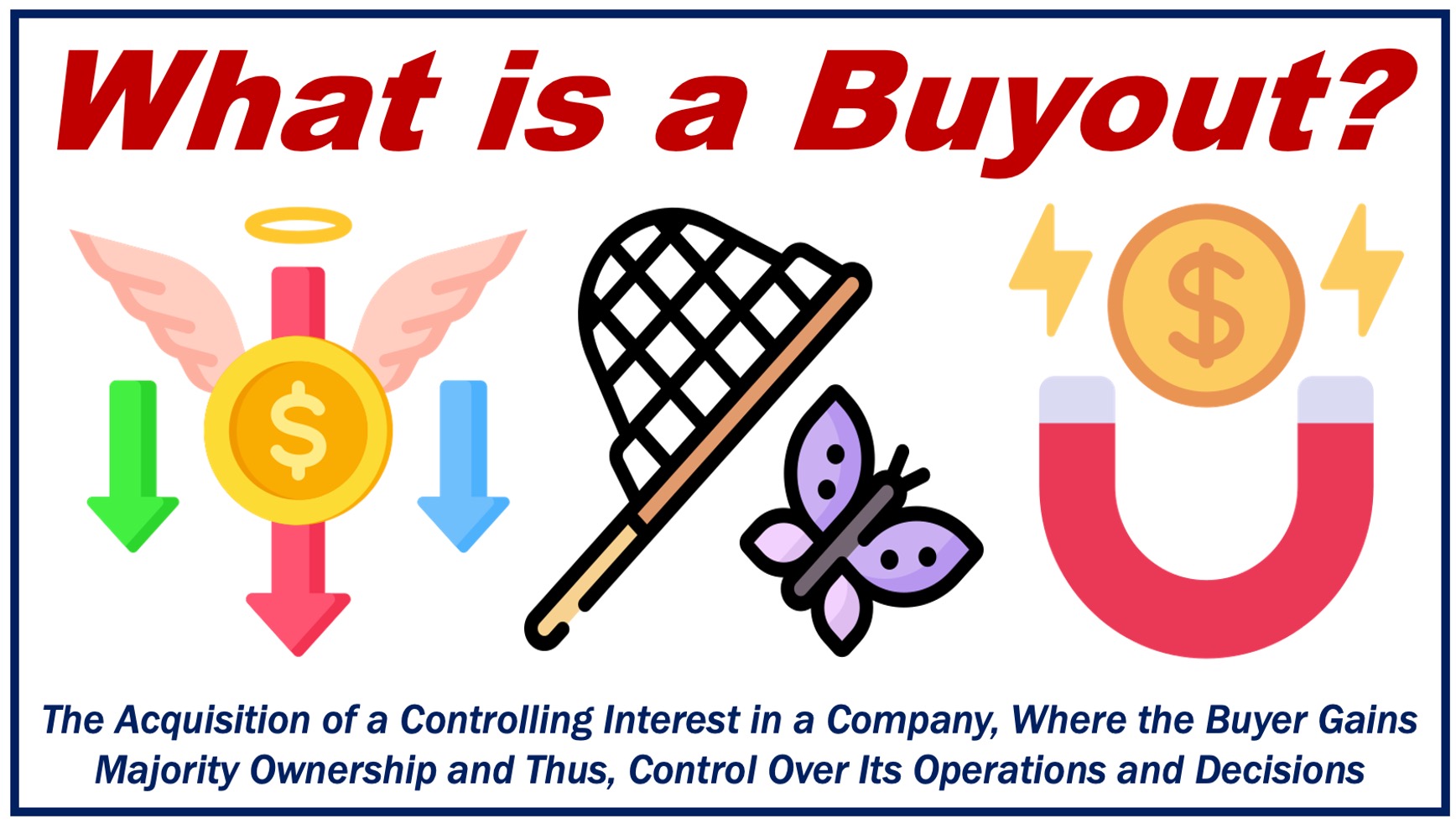In the world of business and finance, the term “buyout” refers to the process of acquiring a controlling interest in a company. Often, buyouts lead to a change in ownership.
If you buy 51% of John Doe Inc. shares, you have performed a buyout because you have acquired a controlling interest or majority interest. With more than half of the shares, you have the majority vote in company decisions, effectively giving you control over the company’s operations and strategic direction.
Two types of buyouts
There are two main types of buyouts – management buyouts (MBOs) and leveraged buyouts (LBOs):
Management buyouts
The company’s management acquires a controlling interest in the company, making it private. This may occur if the company is performing badly and the managers think they could do a better job – improve it.
Leveraged buyouts
In this case, borrowed money (leverage) is used to buy out the company’s current owners. The borrowers use the company’s assets, and sometimes their own assets too, as collateral for the loans needed to finance the acquisition.
The term “collateral” refers to a possession (assets) that the borrower offers as security on a loan, which the lender can claim if the loan is not repaid.

Why do they occur?
Buyouts can have various motivations. For some people, it’s a strategy to gain control of a company that they believe has untapped potential or valuable assets.
For others, it might be about streamlining operations, merging with another company for strategic advantages, or simply taking a public company private to avoid the pressures of public markets.
The impact of a buyout
For the company being acquired, a buyout may mean a shift in strategic direction, changes in management, or a complete overhaul of operations.
For employees, there is a period of uncertainty during which they wonder whether their jobs are secure, what the new management will be like, how the company culture might change, and what new opportunities or challenges will arise.
If it is a public company – one that is quoted on a stock exchange – stock prices and investor perceptions may suffer or benefit.
Notable buyouts
Below is a list of ten notable buyouts, who were involved, the estimated value of the acquisitions, and when they occurred:
- An investor group led by Kohlberg Kravis Roberts & Co., Texas Pacific Group (now TPG), and Goldman Sachs Capital Partners purchased Texas Utilities for approximately $45 billion.
- Berkshire Hathaway and 3G Capital jointly bought Heinz for around $28 billion.
- Michael Dell and private equity firm Silver Lake Partners took Dell private in a deal valued at more than $24 billion.
- TPG Capital and Goldman Sachs Capital Partners bought telecommunications company Alltel for about $27.5 billion.
- A consortium including KKR, Bain & Co., and Merrill Lynch acquired HCA Inc. for approximately $33 billion.
- Kohlberg Kravis Roberts & Co. purchased First Data Corp for about $29 billion.
- Anheuser-Busch InBev acquired SABMiller for over $100 billion, creating the world’s largest beer company.
- Dell, together with its owners Michael Dell, MSD Partners, and Silver Lake, acquired EMC Corporation for approximately $67 billion, the largest technology sector deal at the time.
- Verizon Communications bought Vodafone’s 45% stake in Verizon Wireless for $130 billion, one of the biggest deals in corporate history.
- The acquisition of Neiman Marcus by Saks Global Portfolio, the owner of Saks Fifth Avenue, for $2.65 billion.
